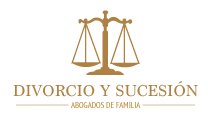Best Landlord & Tenant Lawyers in Bucaramanga
Share your needs with us, get contacted by law firms.
Free. Takes 2 min.
Free Guide to Hiring a Real Estate Lawyer
List of the best lawyers in Bucaramanga, Colombia
About Landlord & Tenant Law in Bucaramanga, Colombia
Landlord and tenant law in Bucaramanga, Colombia governs the rights and responsibilities between property owners who rent their spaces and the individuals or businesses that lease them. The legal framework is primarily based on the Colombian Civil Code and Ley 820 de 2003, which regulates urban residential leases. Both residential and commercial rental agreements are common in Bucaramanga. The law ensures prescriptive standards for contracts, payment terms, duration, renewal, termination, and the procedure for resolving disputes between parties.
Why You May Need a Lawyer
Renting property in Bucaramanga can be straightforward, but conflicts sometimes arise that require legal guidance or intervention. You may need a lawyer if you face one or more of the following situations:
- Drafting or reviewing lease agreements to ensure fairness and legal compliance
- Unpaid rent or repeated late payments, leading to potential eviction or collection processes
- Unlawful termination of the contract by either party
- Damage to the property or disagreements over security deposits
- Subletting issues or unauthorized changes to the terms of the lease
- Dealing with eviction processes or defending against unlawful eviction attempts
- Confusion about rent increases in line with Colombian law
- Clarifying obligations regarding property maintenance and repairs
- Addressing discrimination or privacy rights violations
- Assistance with mediation, negotiation, or representation in court
Local Laws Overview
In Bucaramanga, landlord and tenant relationships are primarily overseen by Ley 820 de 2003 (for urban residential leases) and the Colombian Civil Code (for other types of leases). Here are some key legal points relevant in Bucaramanga:
- Written Leases: Although verbal agreements are possible, written contracts are strongly advised and often necessary for longer-term protection.
- Duration: The minimum lease term for residential properties is usually one year unless agreed otherwise.
- Security Deposits: Deposits cannot exceed the equivalent of two months’ rent. Deposit funds must be kept in a fiduciary account, not directly accessed by the landlord.
- Rent Increases: Increases are regulated and typically cannot exceed the annual inflation rate as determined by the national government for housing rentals.
- Termination: Both parties must provide proper notice-commonly three months in advance-for termination at the contract’s end unless a legal cause for early termination exists.
- Obligations: Landlords must deliver the property in safe, habitable condition and ensure necessary repairs. Tenants must pay rent on time and avoid damaging the property.
- Eviction: Eviction can only be done through the legal process, never through force or intimidation. Nonpayment, subletting without consent, and significant damage can be grounds for eviction.
- Conflict Resolution: Disputes are first encouraged to be settled through negotiation or conciliation. If this fails, court action is possible.
Frequently Asked Questions
What are my rights as a tenant in Bucaramanga?
Tenants are entitled to receive a property in livable condition, privacy, proper notice before rent increases or termination, and the return of their security deposit subject to any damages.
What should a rental contract in Bucaramanga include?
A rental contract should include the identity of the parties, property details, rent amount and payment schedule, deposit terms, lease duration, responsibilities for repairs, and conditions for renewal or termination.
How much can my rent increase, and how often?
For residential leases, rent can be increased once per year and only up to the inflation rate as set by the government. Any higher increases are not allowed by law.
When can a landlord evict a tenant?
Landlords can initiate eviction for non-payment, breach of contract, property misuse, or if the landlord needs the property for their own use or significant renovations, always following the due legal process.
Is a verbal rental agreement valid?
While verbal agreements may be valid for short-term leases, they are hard to enforce. A written contract is always advisable to protect both parties.
What happens to my security deposit at the end of the lease?
The deposit should be returned, minus any costs for damages beyond normal wear and tear. Proper documentation and an official inventory help avoid disputes.
Who is responsible for property repairs?
Landlords are responsible for structural repairs and those required due to normal use. Tenants are liable for damages caused by negligence or misuse.
Can I sublet my apartment?
Subletting is typically not allowed unless the contract permits or the landlord gives written consent. Doing it without permission can be grounds for termination.
What can I do if my landlord refuses to return my deposit?
Start by sending a formal written request. If unresolved, you may seek mediation or file a legal claim in a civil court to recover your deposit.
Where can I go if I have a dispute with my landlord or tenant?
Start with negotiation or a formal conciliation process. The municipal conciliation centers, the Superintendence of Industry and Commerce, or a local court can help if an agreement cannot be reached.
Additional Resources
If you need support or further information, consider approaching these resources in Bucaramanga:
- Conciliation Centers: Many universities and public entities provide free or low-cost mediation services for rental disputes.
- Superintendence of Industry and Commerce: Handles consumer-related housing and rental issues.
- Bucaramanga City Hall (Alcaldía de Bucaramanga): Offers general citizen advice and information about local rental regulations.
- Notaries (Notarías): Can certify documents or mediate basic legal procedures related to property rentals.
- Bar Associations: The Colegio de Abogados offers referrals and legal guidance.
Next Steps
If you require legal assistance regarding landlord & tenant issues in Bucaramanga, Colombia:
- Gather all relevant documents, such as your rental contract, receipts, and any related communication.
- Write down a detailed account of your situation and any steps you have already taken.
- Evaluate if initial negotiation or mediation is possible to resolve the issue amicably.
- Contact a local lawyer who specializes in property or real estate law for advice tailored to your circumstance.
- If needed, consult a conciliation center or approach municipal or legal authorities to begin formal proceedings.
Remember that timely action is important. Legal professionals in Bucaramanga can help you understand your rights, develop a strategy, and represent you effectively throughout the process.
Lawzana helps you find the best lawyers and law firms in Bucaramanga through a curated and pre-screened list of qualified legal professionals. Our platform offers rankings and detailed profiles of attorneys and law firms, allowing you to compare based on practice areas, including Landlord & Tenant, experience, and client feedback.
Each profile includes a description of the firm's areas of practice, client reviews, team members and partners, year of establishment, spoken languages, office locations, contact information, social media presence, and any published articles or resources. Most firms on our platform speak English and are experienced in both local and international legal matters.
Get a quote from top-rated law firms in Bucaramanga, Colombia — quickly, securely, and without unnecessary hassle.
Disclaimer:
The information provided on this page is for general informational purposes only and does not constitute legal advice. While we strive to ensure the accuracy and relevance of the content, legal information may change over time, and interpretations of the law can vary. You should always consult with a qualified legal professional for advice specific to your situation.
We disclaim all liability for actions taken or not taken based on the content of this page. If you believe any information is incorrect or outdated, please contact us, and we will review and update it where appropriate.










